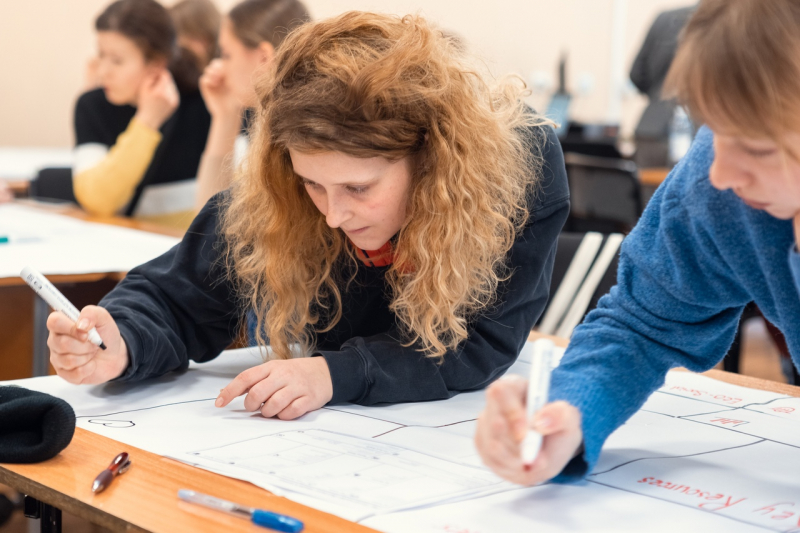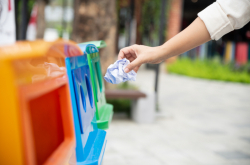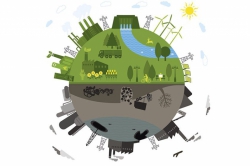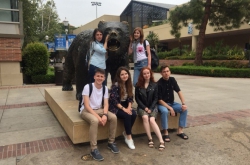A visual tool
Business Model Canvas is an invention of Alexander Osterwalder, a Swiss entrepreneur and business theorist. It’s a visual tool for working with business ideas: by using nine modules, you’re supposed to thoroughly describe strategically important aspects of a business on a piece of paper: its advantages and propositions, key resources, channels, cost structure, revenue streams, key partners, customer relationships and so on.
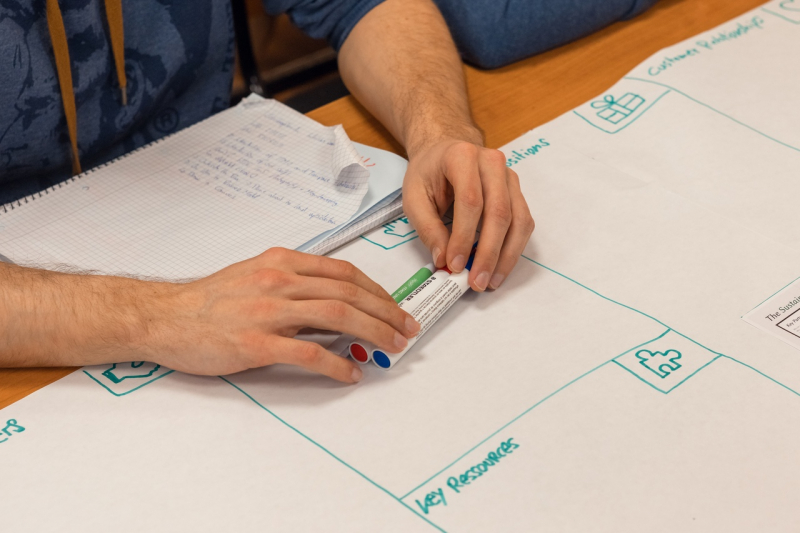
According to Tiina Wickman-Viitala, a professor at TAMK and the project’s author, this tool is very useful for working in multicultural teams: its visual form helps to overcome language barriers. However, the main goal of the intensive program is to teach students to think innovatively.
“The main aim of the event is to teach students how to use the tool in order to think creatively. Every day we give them cases and tasks that require a fresh outlook; we’re trying to make them think actively. When you’re sitting in a class, you’re just listening to the lecturer: you don’t come up with anything, you’re just waiting for the ready-made answers. Here, however, I emphasize all the time that I won’t give you any answers, you have to figure it out for yourselves. And of course, in order to do that they must learn how to ask the right questions,” comments the expert.
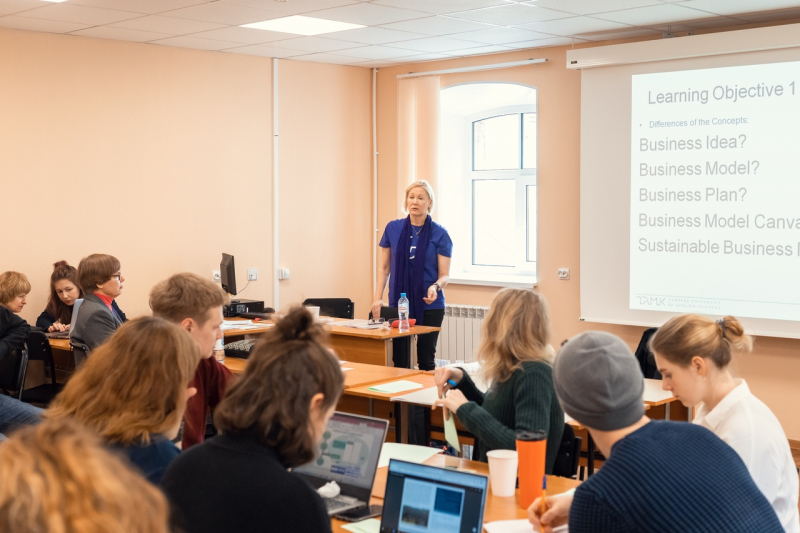
Responsible business as a global agenda
This year’s intensive program was wholly dedicated to sustainable business. Businesses’ responsibilities in regard to ecological problems (such as reducing the amount of waste and environment impact) is a part of the global agenda today. Tiina Wickman-Viitala emphasizes that the Sustainable Development Goals set by the UN in 2015 are an important part of the course’s educational program.
“Sustainability is an important topic worldwide. The UN’s agenda involves all the countries and they all must follow it. We, one might say, spread these ideas among young people. Even if they don’t start their own businesses, they can share the principles with their future employers and possibly influence certain decisions,” explains Prof. Wickman-Viitala.
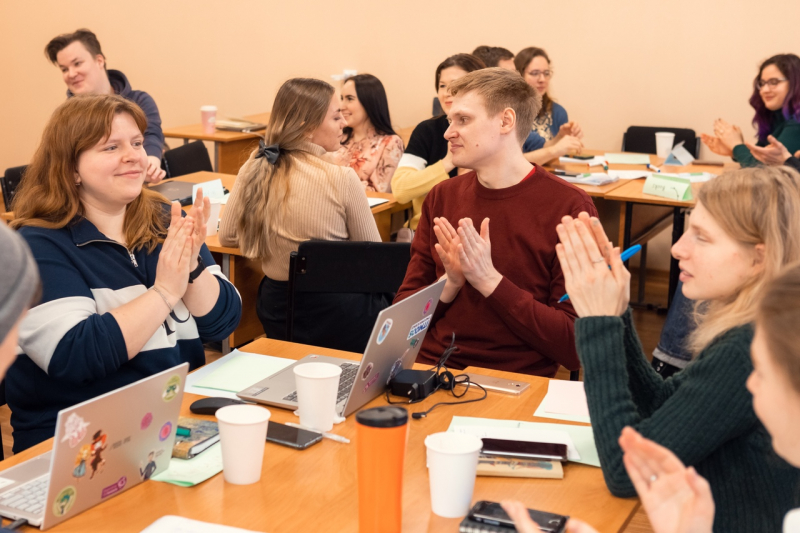
According to Irina Sergeeva, a professor at ITMO University’s Faculty of Technological Management and Innovations and the event’s organizer, the topic of recycling was suggested by the Finnish colleagues, but it’s relevant to ITMO University as well:
“Even last year, half of the student cases were related to ecology in some way or another, because our students from the Industrial Ecology Department always participate,” she says. “The Faculty of Technological Management and Innovations’ students provide management and financial functions. Naturally, they are more familiar with the Business Model Canvas than the students from technological programs. We always get a great collaboration: each time, the students are divided into groups so that there would be mixed teams of “techies” and managers.”
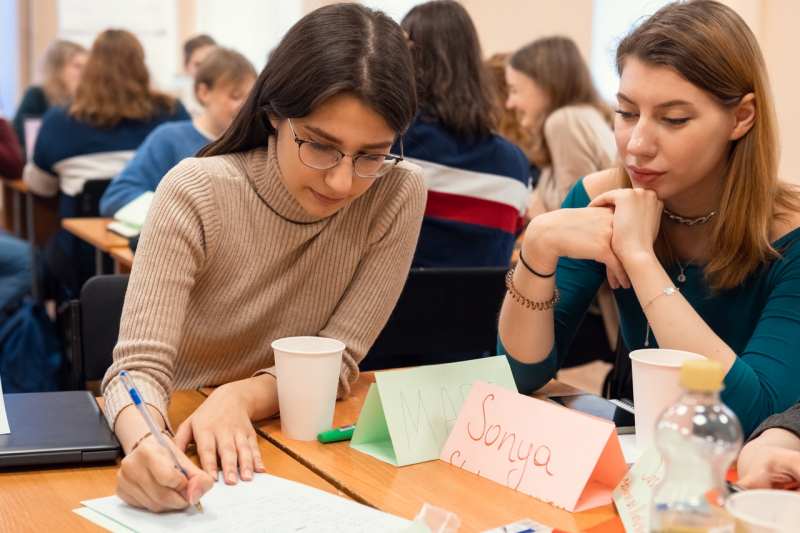
How it went
A total of 26 students have participated in the program this year. Among them were students from ITMO University, RANEPA, University of Tampere, University of Helsinki, as well as students from Zittau/Goerlitz University of Applied Sciences that are also Master’s students of a double-degree program at ITMO University.
During the five days, the participants not only learned how to apply the Canvas method but also attended an extensive series of lectures on ecological situation in Russia and recycling problems. The lectures were conducted by lecturers of The Aleksanteri Institute, which is engaged in Russian and Eastern Europe research, as well as by representatives of the Finnish-Russian Chamber of Commerce and North-West Institute of Management.
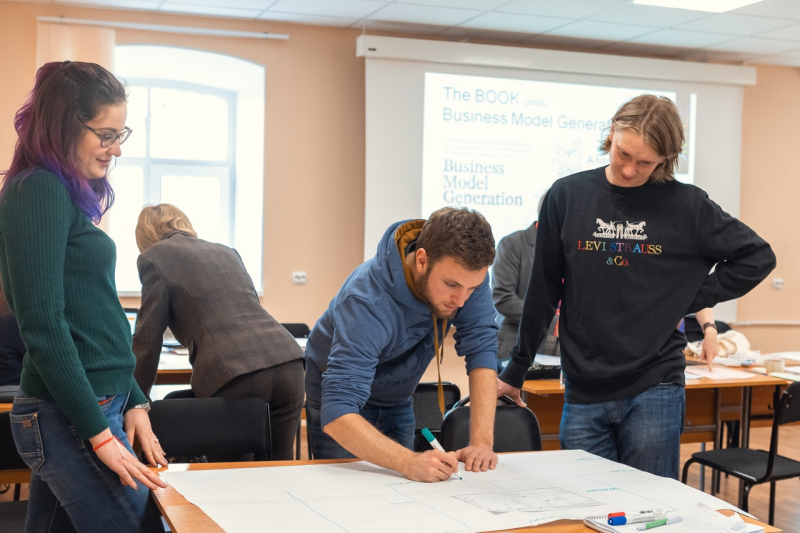
There was also a tour of the Vodokanal of St. Petersburg’s Universe of Water museum and a facility that recycles paper and glass.
Before the beginning of the course, participants had been asked to prepare team presentations on recycling in Russia, Finland, and Germany. By the end of the program, they were supposed to transform their initial ideas according to the Business Model Canvas and prepare presentations of a viable business product.
“It was required from students to come with their own ideas. It doesn’t make sense to work on a business model without being interested in the topic. So, it’s important that the students choose the topics that they care about and try to work out how to develop it sustainably,” says Tiina Wickman-Viitala.
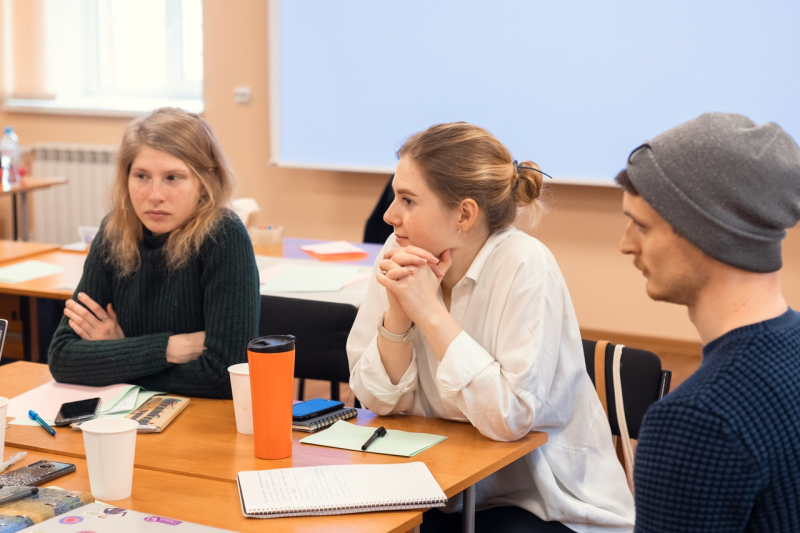
Gazprom and restoring the fish population
During the week, ITMO.NEWS spoke to Russian and Finnish participants of Business Model Canvas Week about the projects that they were working on and their expectations.
Polina Aptikasheva, fourth-year Bachelor’s student at ITMO University, Faculty of Technological Management and Innovations, Financial Management program
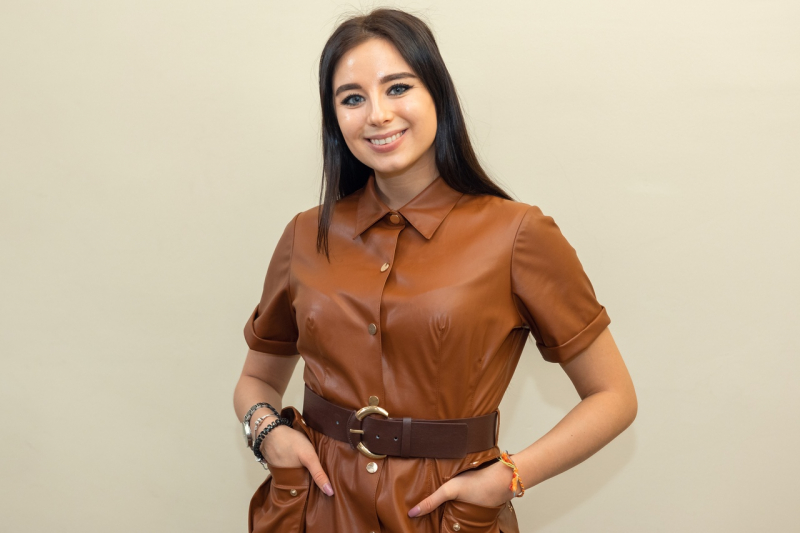
For our project, we have analyzed how waste management works in Russia by using the example of major Russian companies: Gazprom, Rosneft, and NLMK. For instance, Gazprom has been reducing the amount of waste since 2013 and increasing the amount of treatment facilities. They also recultivate the earth, plant trees at the drilling places, and restore the fish population at reservoirs.
When I was studying in Finland I was amused by how common and casual waste sorting is: there are containers for plastic, paper, glass and food waste by every building and inside every apartment.
Ecology is so important there that even during my studies at Tampere University of Applied Sciences’ international business program, we had a compulsory course called Corporate Social Responsibility. It was dedicated to minimizing companies’ environment impact.
Here, in Russia, this whole thing only begins, but at least we’ve started to think about these problems.
For me, participation in this project is, first of all, a great chance to practice English. I also want to find out how everything works in other countries, and to meet new people. I’m trying to participate in all international projects, that’s my way of keeping language skills at a decent level.
It’s also interesting to see how we, students, come up with business cases without the teacher’s help. That’s how education works in Finland, by the way: the teacher only gives a topic, and the students work with it. It’s fascinating and it allows you to distract yourself from the daily studying routine.
Lada Emelianova, third-year Bachelor’s student at RANEPA, Faculty of Economics and Finance, Economics of Enterprises and Organizations program
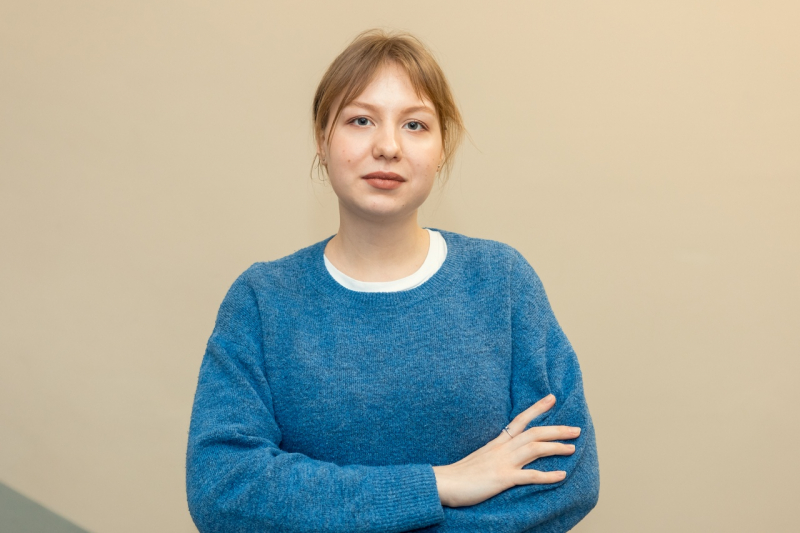
I often participate in such events as Finnish weeks and international activities, and I also communicate with international students. Last year I participated in an exchange program in Bulgaria. At my university, I’m a coordinator of international students of our faculty.
I found out about Business Model Canvas Week from our student council and applied straight away. My goal is networking and communication both with ITMO University students and international students. There are different educational systems and objectives in our countries, so it’s very interesting to compare and discuss them.
Overall, ecology and sustainability are very relevant topics. I participate in several ecological projects: we take part in contests, solve business cases for major companies: Valio, L’Oreal. Nowadays, the brands are willing to cooperate with students a lot, and they are trying to reduce the amount of plastic they produce. We’re trying to help solve this problem. We visit company facilities and suggest our ideas.
This program’s project of ours is dedicated to the trash reform in Russia. We’ll be thinking on how to recycle solid waste: plastic, paper, and glass. We’ll work on a business idea and ways to make it profitable.
Before the beginning of the work, we have conducted a field research: we’ve been looking for the information on the reform and the real situation in Russia. We want to use the knowledge that international participants will share with us.
Kristina Goliakov, second year Master’s student at University of Helsinki, The Aleksanteri Institute, Russian Studies program
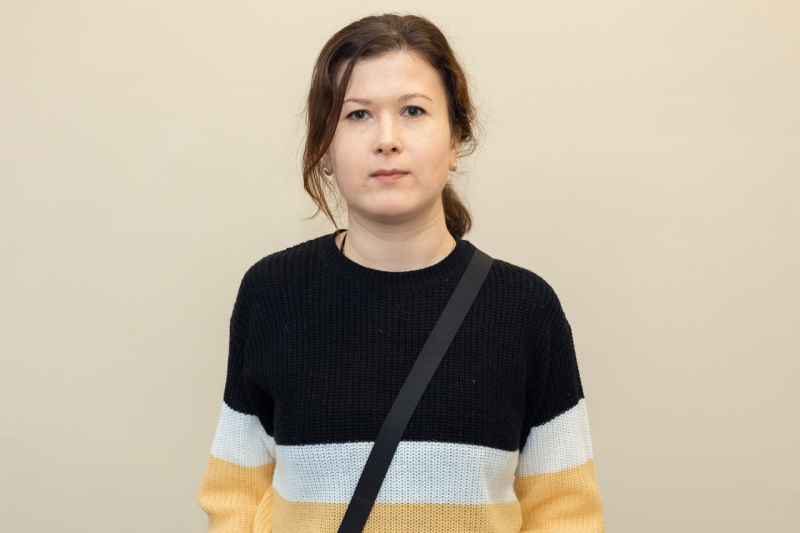
I’m studying at the Russian Studies program, which was launched only two years ago. It’s an interdisciplinary program that includes completely different subjects. For example, for me the most interesting fields are waste management and cross-border cooperation.
At the moment I’m writing my thesis on waste management in particular. Participating in this project will allow me to complete the part of my research that is related to cross-border cooperation. So, I’m looking for Russian companies that are interested in this kind of cooperation or are already involved in it.
I’ve never studied business or management, but I realized that I must understand how this field works in order to research it. It was very interesting to see what waste management system looks like in Russia. As a Russian language native living in Finland, I believe that I should be aware about it. If I am to speak about waste management in Russia, I must come here and see it for myself.
Overall, I think it’s great for people from various countries to meet and discuss common topics. It brings people closer and provides international communication. I think that’s how all problems should be solved.
Translated by Kseniia Tereshchenko
